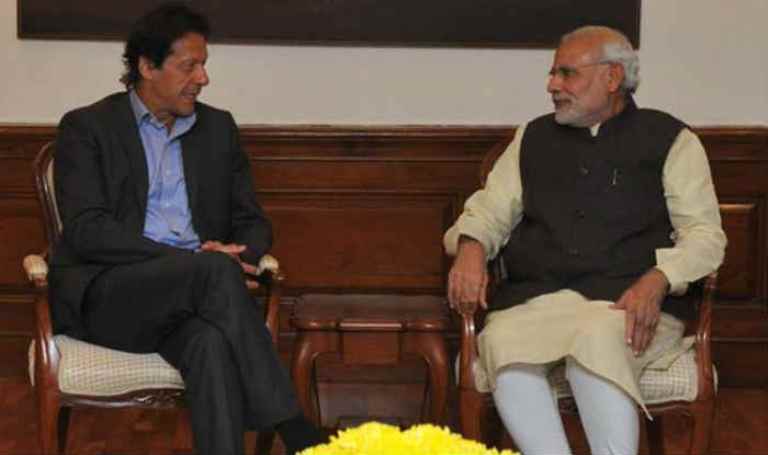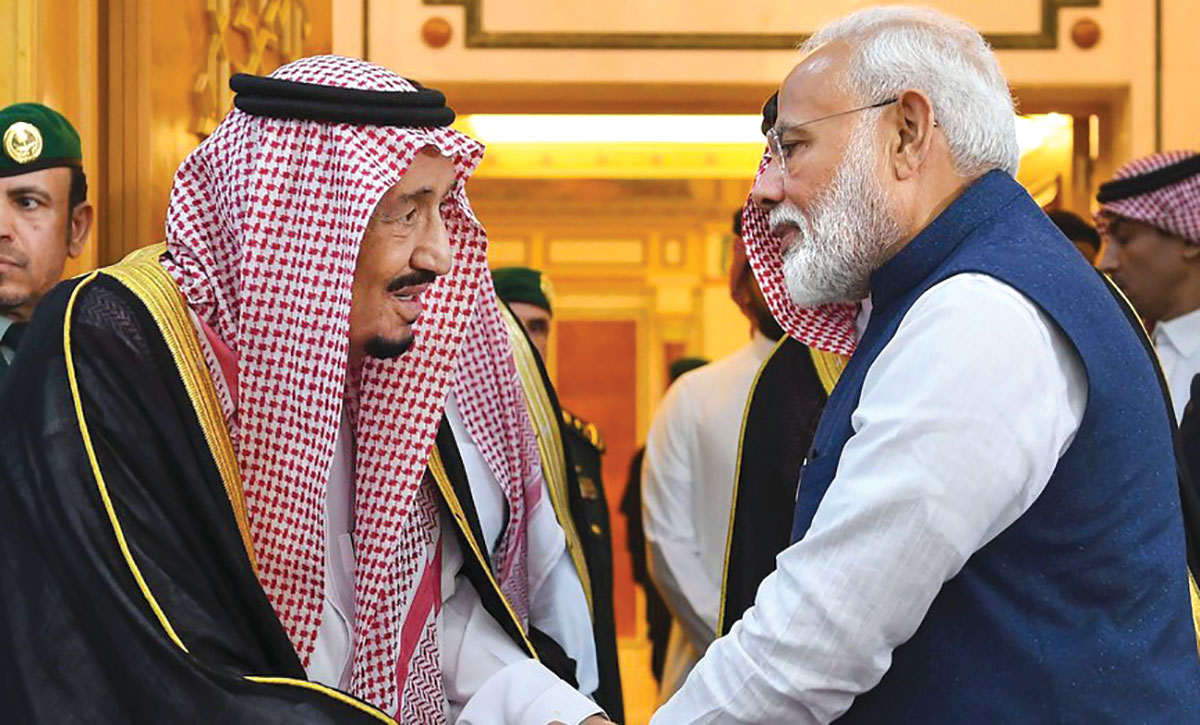It would be interesting to see how the back-channel engagement between India and Pakistan evolves in the weeks and months to come and whether or not Delhi will concede in response to Islamabad’s demands, writes Riyaz Wani

On April 23, Pakistan Army chief General Qamar Javed Bajwa met around top 20 journalists in Pakistan for an Iftaar dinner and discussed the on-going thaw with India in what was said to be in strict confidence. Only that the meeting and much of what was discussed there soon became the talk of the town. There are many things attributed to Bajwa, the drift of which is that trade and economics will guide the future relations with India, not Kashmir and terrorism. At the same time, however, the fresh engagement with India is not unconditional: Bajwa like the civilian government in Pakistan wants India to create “an enabling environment” before talks begin.
Now what is this ‘enabling environment’? There are many versions of what Pakistan actually wants. Here is how a story quoting sources in the Pakistan government answered the question.

First, a permanent halt to demographic change in Kashmir, where India in April 2020 introduced a new domicile law that would allow long-term migrants from other parts of the country to gain permanent residence.
Second, Indian authorities would have to release political and other prisoners being held since it imposed a strict lockdown in August 2019, when it revoked Article 370 of its constitution, which gave Kashmir a special constitutional status.
Third, the removal by India of blockades on communication and movement in the region.
Fourth, giving back full statehood rights to Kashmir, which were also revoked as part of the August 2019 actions, and “recognising that it is subject to an internationally recognised territorial dispute with Pakistan”.
Fifth, a reduction in security forces deployment in Kashmir, where hundreds of thousands of security forces personnel have been deployed following the August 2019 imposition of lockdown after India’s Article 370 was revoked.

The Dawn Report
This is, by and large, what the reports about Bajwa’s meeting also largely repeat. For example, a report in Pakistani newspaper Dawn a day after the Bajwa meeting points out the acknowledgement by Pakistani “officials” of the country’s primary interest at this initial stage being that “Kashmir gets back its statehood and India agrees not to bring about any demographic changes in the disputed territory”.
This is a conspicuous downgrade from Islamabad’s earlier position that there will be no engagement with India reverses its revocation of Article 370 that granted Jammu and Kashmir its semi-autonomous status under India’s constitution. Now statehood for Kashmir and an assurance of no demographic change in Kashmir would be enough for Pakistan to resume dialogue.
“If India is willing to revisit some of the decisions that they took on August 5, 2019, Pakistan will be more than happy to engage, sit and talk out our differences and sit and, through a dialogue, resolve the outstanding issues,” Pakistan Foreign Minister Shah Mahmood Qureshi said in an interview to Turkish Anadolu Agency, referring to India’s August 2019 move to withdraw Kashmir’s special constitutional status.
Here again, Qureshi is only asking for the reversal of only “some of the decisions” of the August 5 move. This shows Islamabad has reconciled to the irrevocability of the far-reaching constitutional changes in Kashmir. This is apparent also from some reports about General Bajwa’s iftaar.

The Express Report
Bajwa, according to an Indian Express report, has told the journalists that “the reading down of Article 370 is not an issue of concern for Pakistan as it had never recognised this provision of the Indian Constitution as one of any value for the resolution of the Kashmir” issue. “Bajwa said that more important from Pakistan’s point of view, was restoration of statehood, and that there should be no demographic change in Kashmir. He suggested India had given assurances on both counts,” the report reads.
At the same time, Pakistan FM Qureshi has cautioned against attaching too much importance to the nascent process of talks, according to a report in al-Jazeera.
“It is too early to make a value judgement on that,” he said to Anadolu Agency. Qureshi also stressed the need for the two countries to avoid active conflict. “We cannot afford to go to war, you know, it will be mutually suicidal. And no sensible person will advocate a policy of that nature. So, we need to sit and we need to talk.”

A Calm Delhi
But as for New Delhi, there’s not even a distant sign that it is working towards fulfilment of any of these Pakistani conditions – albeit, India hasn’t signalled that it won’t meet them, nor denied that it is engaging Pakistan on the back-channel, itself very important sign of a detente between the two neighbours. India has steered clear of slew of media reports on the secret dialogue between the two countries emanating from Pakistan.
“Our respective High Commissions exist and are functioning. That is a very effective channel of communication. Regarding speculation about SAARC summit, I have nothing to share with you at the moment,” MEA Spokesperson Arindam Bagchi told journalists when asked about the reports carried about the back channel by Pakistani and international press.
India’s silence could also be because of the ongoing elections in four states and one union territory and also because of the virulent second Covid wave. This is unlikely to get the two countries talking anytime soon. Also, it will be important to see whether Modi will emerge from the current catastrophe unscathed. For the dialogue with Pakistan to go ahead and for the PM Modi to take important decisions, it is important that he continues to retain the political capital that he did before the second wave of pandemic begun. Any diminishing of his political standing will make the dialogue with Pakistan unsustainable and it could be a matter of time before the two neighbours return to their adversarial relationship.

However, a source based news in an Indian daily said that India had conveyed to the United Arab Emirates (UAE) that Pakistan’s demand to roll back its August 5, 2019 decision on Jammu and Kashmir will not help to create conducive atmosphere for restarting talks between the two nations.
“New Delhi informally conveyed to Islamabad through the UAE that the Modi government’s decision to withdraw the special status granted to J&K under Article 370 of the Constitution was endorsed by Parliament of India and was irreversible,” the newspaper Deccan Herald reported quoting sources in New Delhi. “India also stressed that the UAE might advise Pakistan that such rhetoric would neither help to create mobilize public opinion in favour of resumption of talks between the two South Asian neighbours nor would create conducive atmosphere for such engagement.”
A New Policy?
But what is currently being watched keenly in Kashmir is what is Pakistan up to in so far as its new policy on Kashmir. To quote again Dawn report in the wake of General Bajwa’s meeting, Pakistan wants to allow itself some break from lingering conflict with India to focus on the economy and the other internal challenges.
“It is an opportune time for us to take a strategic pause,” says an official. “We need a break from the cycle of violence and focus on domestic issues.”

The recent peace moves, Dawn report adds, constitute a major policy initiative towards normalisation of ties. “They also reflect the changing dynamics in Islamabad and New Delhi whereby those advocating greater engagement have begun to dominate those people who espoused a hardline and hawkish approach within decision-making circles,” report further says.
But as of now all we are hearing are statement, almost all of them coming from Pakistan. It would be interesting to see how the engagement evolves in the weeks and months to come and what New Delhi might or might not concede in response to Pakistan’s demands.















